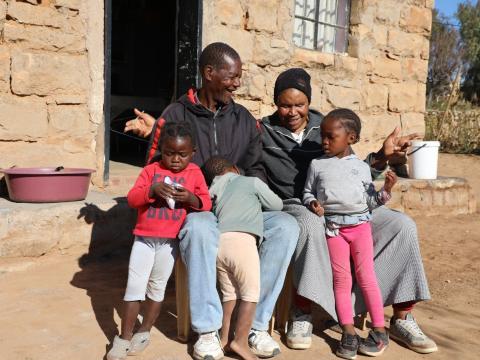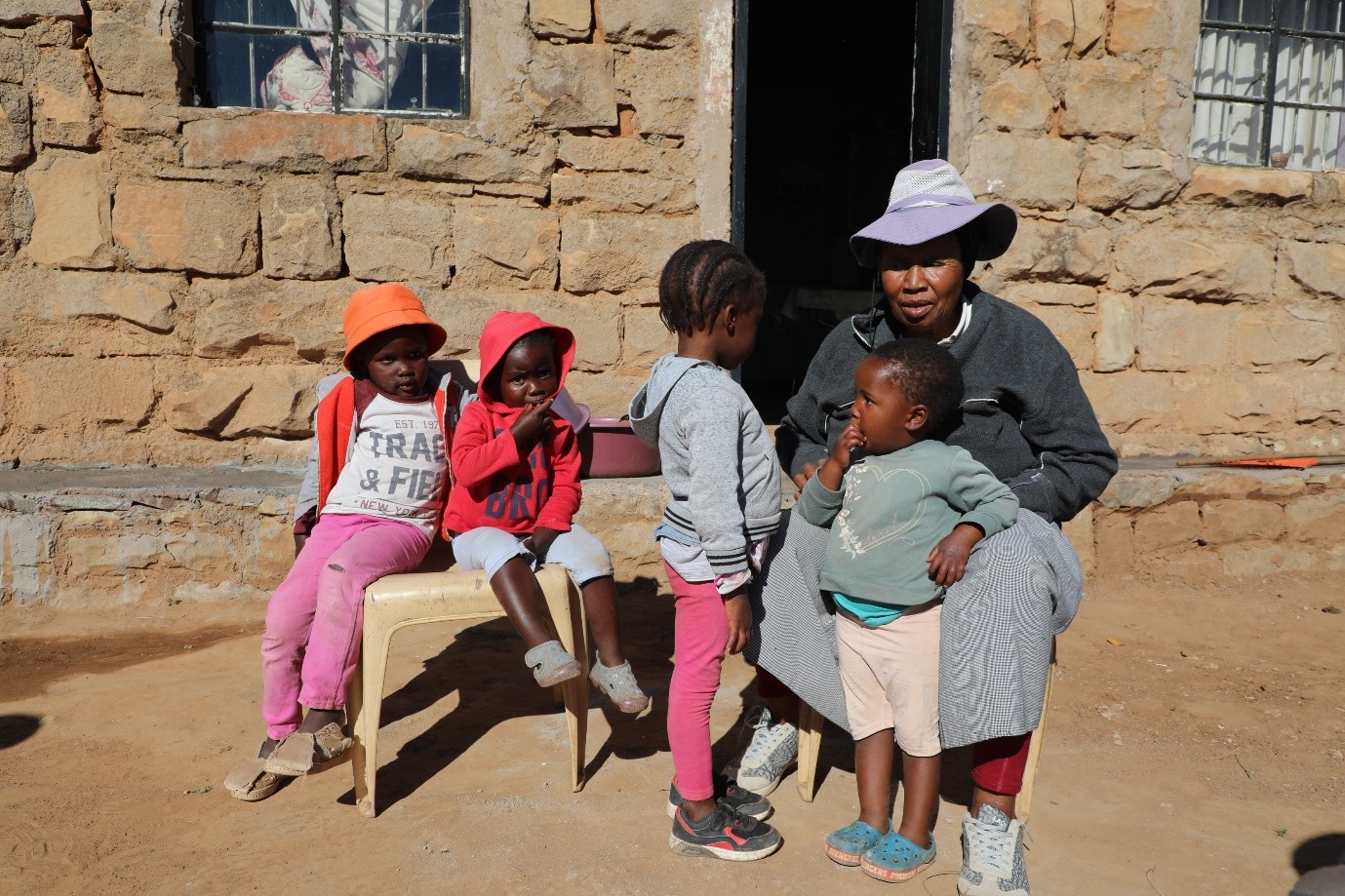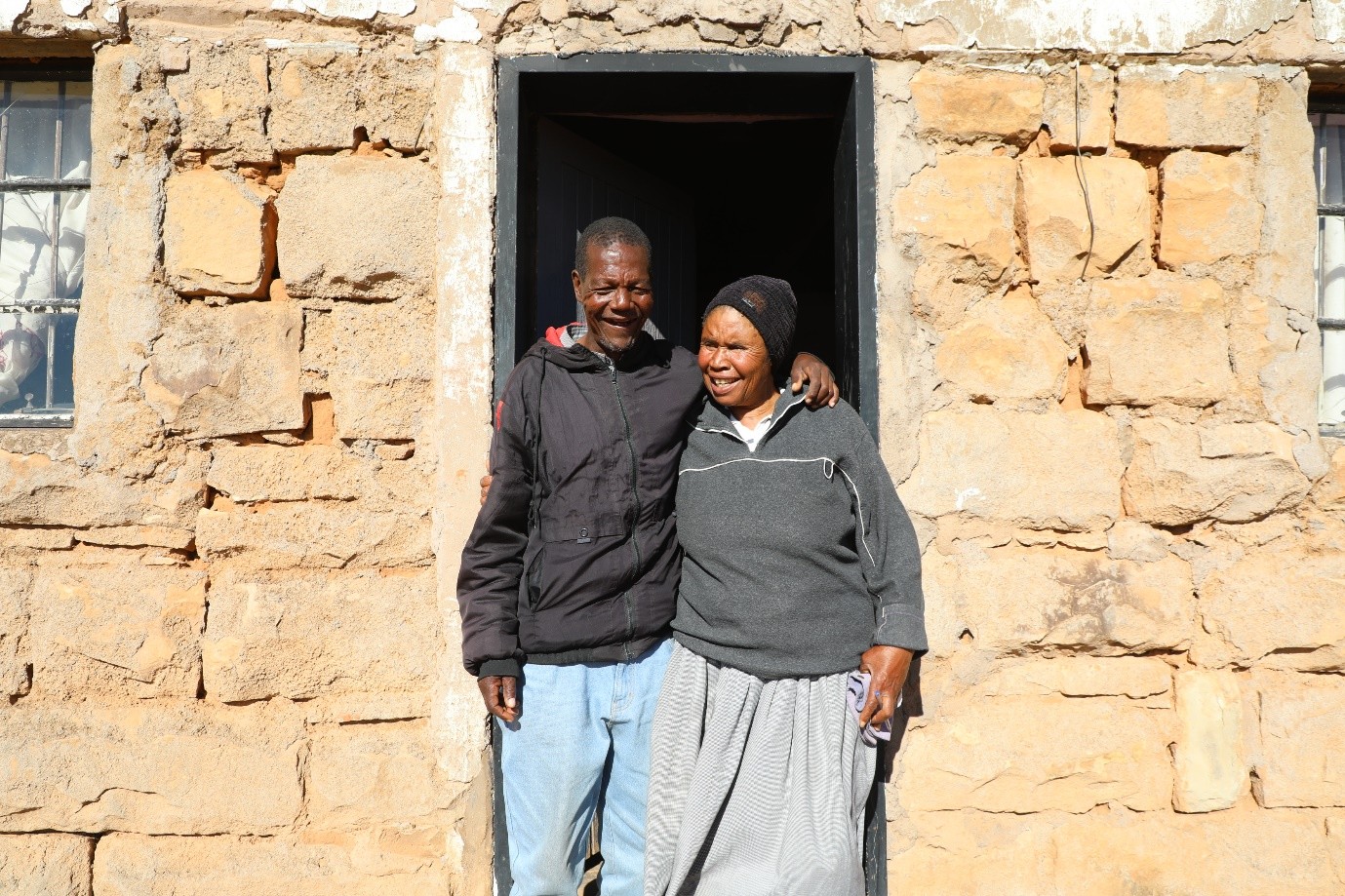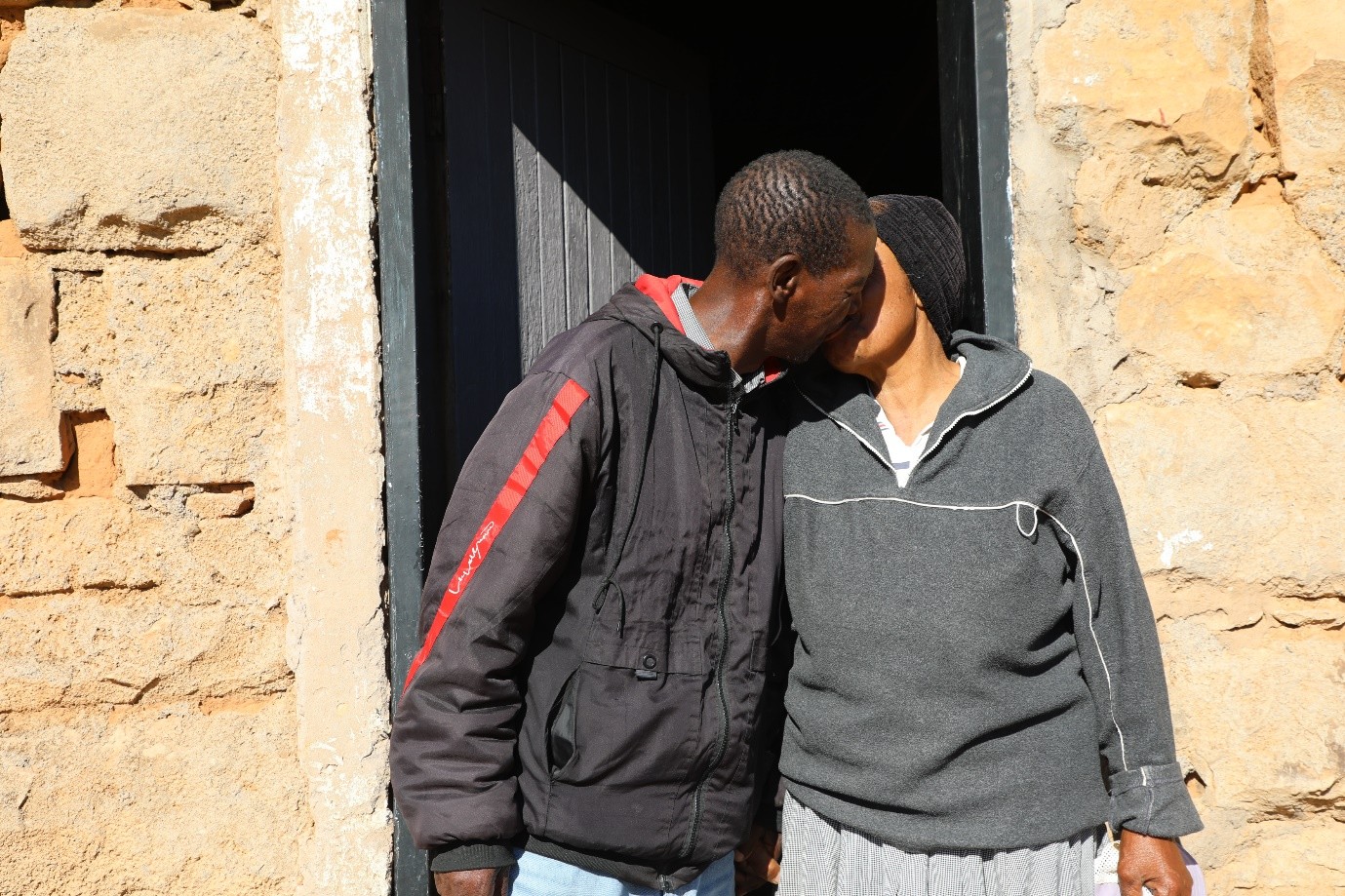How the Celebrating Families Model Transformed Thapelo’s Home into a Haven of Love

By: Reentseng Phephetho, Communications and Digital Officer, World Vision Lesotho
In the quiet village of Ha Lesoma in Matelile, a powerful story of a family transformed unfolds; a story of love rekindled, hearts reawakened, and children finally growing in a home filled with warmth, care, and connection. At the heart of this story are Thapelo Ntsoele and his wife, ‘Malebohang, whose journey from silent suffering to joyful unity reflects not only their personal healing but the dismantling of harmful generational norms deeply rooted in Basotho traditions.
For generations, families in Lesotho; like many across the continent, have been shaped by rigid cultural beliefs and gender norms that often undermine emotional connection within the home. In many traditional Basotho households, men are seen as providers and decision-makers, emotionally distant and uninvolved in caregiving, while women are expected to serve quietly, carrying the weight of the household alone. Expressions of affection are rare, and communication is often transactional. Love is assumed but never shown.

Thapelo and ‘Malebohang, married for decades and now parents to ten children and grandparents to six, lived this reality every day. Their home functioned, but it lacked intimacy. They worked hard, but never worked together. “I was just a man who did not really care about my wife,” Thapelo confessed. “We were doing what we believed was right because it was what we had seen growing up.” Their relationship had settled into quiet tension. ‘Malebohang managed everything in the home from cooking, cleaning and raising the children while Thapelo worked the fields and made financial decisions without her input. Even small acts of support, like putting away tools after farming, were never considered his role.
“We were doing what we believed was right because it was what we had seen growing up.” - Thapelo
Their children, growing up under this dynamic, absorbed more than chores and rules; they inherited a model of family life where emotional connection was absent, and caregiving was a burden carried by one. Financial decisions led to frequent arguments, and open expressions of love were practically non-existent. “‘The last time Thapelo told me he loved me was when we were still in high school.” said ‘Malebohang,. And she believed that was normal. The couple’s beliefs about parenting also mirrored their inherited views; Thapelo, believing discipline meant hard work, would send their children to the fields at 4:00 a.m. even in winter. Though both were Christians, even Sundays were imbalanced, Thapelo left early for church while ‘Malebohang stayed behind, ensuring everything was in order before following with the children.

But then, everything began to change when World Vision Lesotho introduced Celebrating Families, a biblically grounded, evidence-based programme designed to strengthen and restore families by challenging harmful cultural practices and promoting healthy relationships. The programme helps families reflect on their values and behaviours, breaking generational cycles of emotional neglect, inequality, and unhealthy parenting. At its core, Celebrating Families supports households to become safe, loving spaces where children can experience the love of God through shared responsibility, open communication, mutual respect, and emotional nurturing.
Thapelo and ‘Malebohang were among the first in their village to participate in the programme’s sessions. What they discovered through those teachings opened their eyes and softened their hearts. “For us, it felt like life had been unfair before. All we needed was the training to create ourselves a happy, loving family,” Thapelo shared.
"All we needed was the training to create ourselves a happy, loving family,” - Thapelo
Together, they began to unlearn what they thought was “normal.” They began to see their relationship as a partnership, not a contract. Thapelo learned that caregiving was not beneath him but a sign of love. ‘Malebohang realized that being loved out loud, being supported and heard, was not asking too much but was in fact what she deserved.

Today, their home tells a new story. Thapelo now shares household chores and actively cares for the children and grandchildren. He supports ‘Malebohang not only in physical tasks but with kind words, gentle acts, and emotional presence. “Now I am told daily that I am loved,” she says, smiling. “He treats me so well that he gives me random kisses.” Their home has transformed from a place of quiet obligation to one of open affection, joy, and genuine companionship. Their children, no longer driven by fear or duty, now volunteer to help in the fields because they feel loved and secure.
“Now I am told daily that I am loved,” - 'Mathapelo
The change is deep and lasting. Financial planning is now a joint effort, and discipline has shifted from control to guidance. Arguments have been replaced by respectful dialogue, Thapelo no longer sees love as something to withhold; he sees it as something to give freely. “‘Malebohang no longer raises her voice at me. I feel more alive and respected,” he said. “I now feel the responsibility to maintain the happiness of my family.”
“I now feel the responsibility to maintain the happiness of my family.” - Thapelo
And they are not keeping this transformation to themselves. The couple now openly shares their testimony in church and community gatherings, encouraging other families to embrace a different path; one built on faith, love, and partnership. Their story is spreading hope throughout their village and beyond, inspiring others to challenge harmful norms and make room for healing.
For the Ntsoele family, Celebrating Families didn’t just bring change but with it came redemption. From a legacy of emotional distance, they are building a new inheritance; one of compassion, cooperation, and Christ-centered love. Their journey is a reminder that when families are rooted in mutual respect, guided by faith, and committed to healing, everything changes. Children thrive. Parents grow. Love is no longer assumed; it is lived.